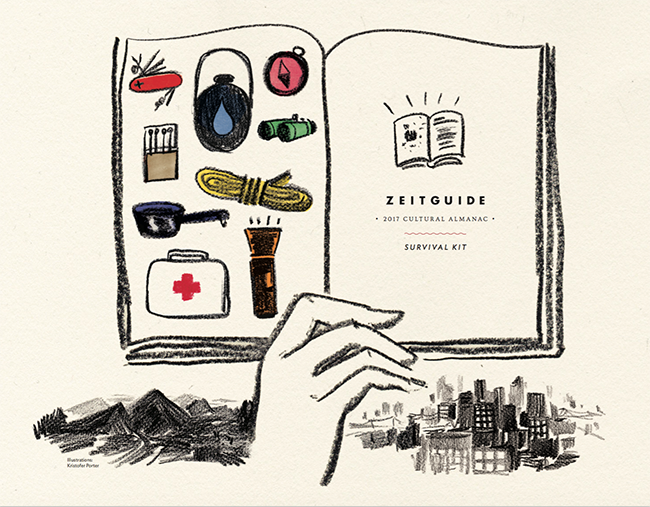ZEITGUIDE To The Leaders Of Tomorrow

January 20th was Day 1 of the Trump administration. Whether your slogan for that day was “Yeah! Let’s make America great again!” or “Don’t blame me, I voted for Hillary,” chances are your voice at least was heard in this election. Not so for most of the 60 million members of Generation Z.
Mostly born in a post-9/11 world, their youth has been shaped by iPhones and Snapchat—also recession, financial crisis and one of the craziest elections in history. How might this be influencing the Gen Z leaders of tomorrow?
“I really think that Gen Z is eager to be the change-makers,” says Clara Nevins, a junior at the Marlborough School in Los Angeles. “There are so many things to fight over, and young people are eager to get their voices out there.”
Nevins is doing just that with digital savvy. Concerned about the nation’s unprecedented political polarization, Nevins (a high school fellow with the Clinton campaign) teamed up with Joseph Touma, a conservative senior at Huntington High School in West Virginia. They started an organization called Bridge the Divide with the goal of promoting political tolerance and openness to a diversity of opinions among young people.
Their website includes op-eds and online discussions, but BTD also promotes in-person conversation via its ambassadors at high schools, and events including leadership summits and live-streamed discussions. Over inauguration weekend, Touma and Nevins broadcast interviews from Washington D.C. and the Women’s March in Los Angeles via Facebook Live and promoted civil political conversation on Twitter using #BTDlive.
Healing political divides truly is an area where youth might be our best hope. Research shows that our political stances get more rigid as we age. A 2014 study from Pew found that among Americans ages 18-29, only 36% fall into the staunchest Republican and Democratic groups. Meanwhile, 65% of those 65 and older fell into these firm designations. Millennials have been found to be more politically polarized today than Gen X-ers or Boomers were at their age.
But there are signs, though early, of Gen Z-ers breaking from this trend. As authors Corey Seemiller and Meghan Grace cover in their book, “Generation Z Goes to College,” while Gen Z-ers are unsurprisingly more socially liberal than previous generations, they’re also more financially conservative than other groups were at their age.
“Ascribing to political parties as they have historically been defined might be challenging for them,” write Seemiller and Grace. “This may mean that more Generation Z voters register as independents, or it may simply mean a generation disconnected from the two-party political system.”
Will we get more apathetic nonvoters, or a generation of social and political trailblazers? We’ll start to see in November 2018 and 2022.
